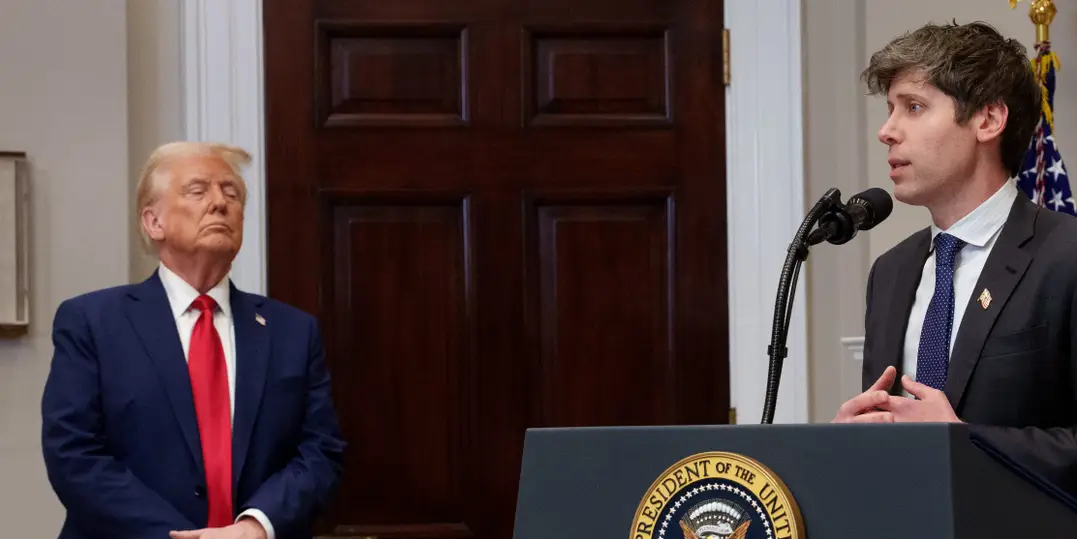The US will be able to achieve AGI, or artificial general intelligence, with President Donald Trump’s new Stargate AI project, OpenAI CEO Sam Altman said on Tuesday.
Altman was at the White House on Tuesday when Trump announced Stargate, a new joint venture between OpenAI, Oracle, and SoftBank. Stargate is expected to invest up to $500 billion in AI infrastructure across the US.
“This means we can create AI and AGI in the United States of America,” Altman said of Stargate during a Tuesday interview with Fox News’s Bret Baier, adding that Stargate wouldn’t exist without Trump.
“I think with a different president it might not have been possible. But we are thrilled to get to do this, and I think it’ll be great for Americans, great for the whole world,” Altman told Baier.
Building AGI in the US would create “hundreds of thousands of jobs,” Altman said at the press conference following Trump’s Tuesday announcement.
“I’m thrilled we get to do this in the United States of America. I think this will be the most important project of this era,” Altman told reporters at the White House.
OpenAI did not respond to a request for comment from Business Insider.
To be sure, the US is likely not close to achieving AGI just yet. Altman, too, took to X to temper expectations that OpenAI is on the cusp of achieving AGI.
On Monday, Altman wrote in an X post that OpenAI was “not gonna deploy AGI next month, nor have we built it.”
“We have some very cool stuff for you but pls chill and cut your expectations 100x!” Altman wrote on X.
Still, OpenAI is developing new offerings — and rolling them out quickly. The OpenAI chief wrote in a blog post on January 5 that companies could start using AI agents this year.
“We are now confident we know how to build AGI as we have traditionally understood it. We believe that, in 2025, we may see the first AI agents ‘join the workforce’ and materially change the output of companies,” Altman wrote.
IMF Managing Director Kristalina Georgieva predicted in a blog post in January 2024 that AI’s impact on the job market would be uneven. Around 60% of the jobs in advanced economies will be affected by AI, Georgieva wrote.
“Roughly half the exposed jobs may benefit from AI integration, enhancing productivity,” Georgieva wrote in her blog post.
“For the other half, AI applications may execute key tasks currently performed by humans, which could lower labor demand, leading to lower wages and reduced hiring. In the most extreme cases, some of these jobs may disappear,” she added.



